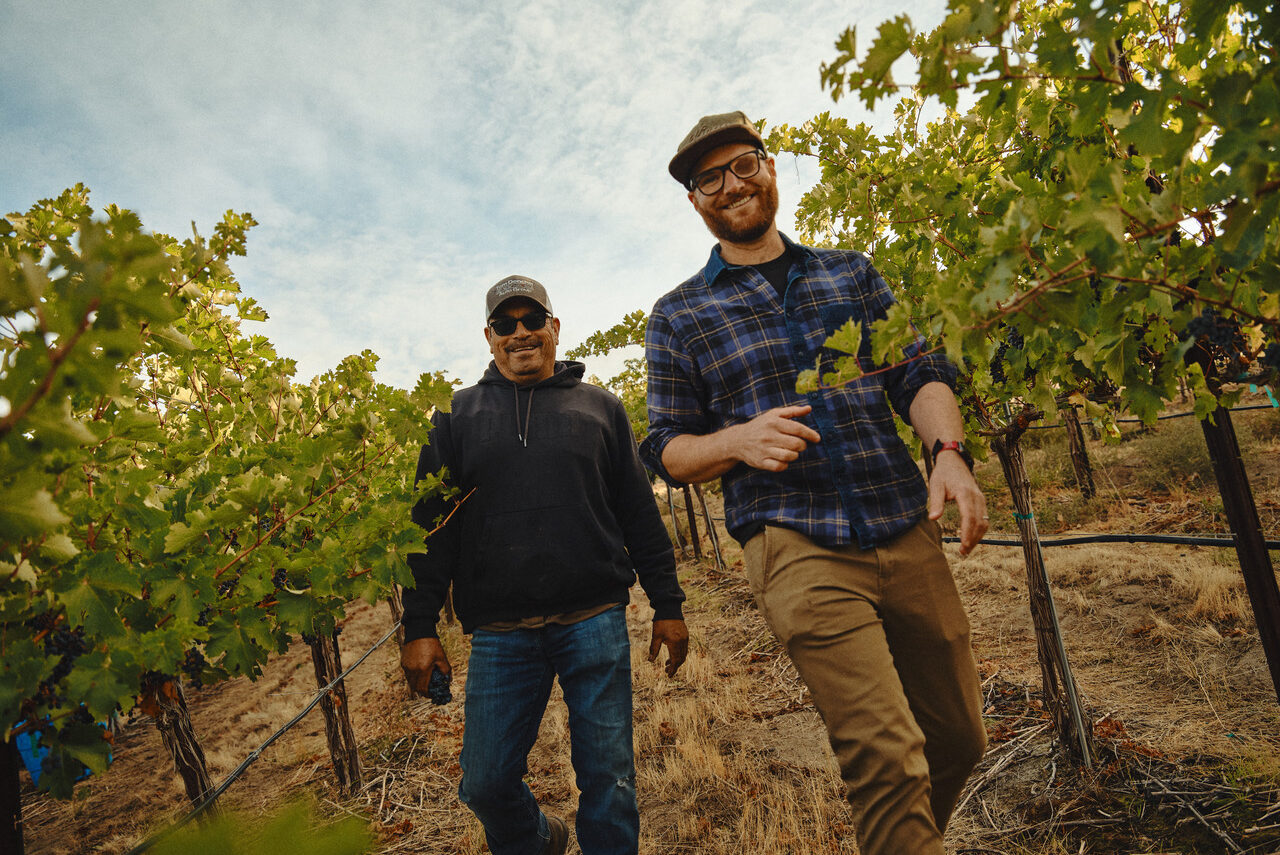Why did you decide to certify your vineyards through Sustainable WA?
JJ Williams (JW): Here on Red Mountain, we’re growing high-end grapes for high-end, discerning customers. Winemakers that use our fruit should be able to be proud of their sourcing decision, not only from the perspective of responsible sourcing, but in strengthening their value proposition from a sales+marketing perspective. By certifying our vineyards, we’re giving 50+ wineries and 100s of Red Mountain appellated wines a competitive advantage out in the marketplace.
What does sustainability mean to you?
JW: We owe it to each other as a society to embrace the mentality, process, and systems that lead to a “Sustainability” certification. Not to mention the program makes us better: Intentionality in decision making is easier with clear communication of internal of processes, procedures, and policy. Having a Sustainable WA certification means you’re taking what was previously a thought in someone’s head, and putting it down on a piece of paper, with a degree of scrutiny and transparency that wasn’t possible before. It’s not as if Sustainable WA is “telling us how to farm” as much as we are telling Sustainable WA, “this is how we farm, take a look at the system and tell us how we can improve.”

Why is a certification important to your business?
JW: We know that we’ve farmed responsibly for the entirety of our 45+ year history, but communicating that to our clientele was an uphill battle, both on the wine sales side, and the grape sales side. Having the certification in our back pocket allows us to have a “yes, AND” answer instead of a “yes, BUT” answer. A lot of our distributors have moved their product books from a paper format to a digital database format. Prospective wine buyers can query the database to include “certified sustainable” products – your wine either shows up or it doesn’t. It might sound reductive to have it boil down to that, but if a single checkbox is going to disqualify our wine from consideration, then we need to do everything in our power to show up when a buyer makes that inquiry.
Why is it important for WA to have its own certification program?
JW: Getting a certification “just to have one” goes against the very ethos of sustainability. One of the frustrations with other certifying entities is that we found the rules to be “square peg, round hole.” Changing our farming practices to adhere to a standard that was built for a western Oregon climate, for example, made absolutely no sense. To do it right, the standard needs to matched to a single set of climactic/geographic/viticultural conditions. And in our case, it’s a 1-of-1 choice – Sustainable WA.
Why should a winery consider purchasing certified grapes?
JW: We’re getting the question at our winery. I’m sure that means everyone else is getting the question at their wineries. Don’t be the last winery to be able to answer, “yes, we’re certified sustainable.”
This Q&A is part of our Sustainable WA Grower Stories series, which highlights the importance of the Sustainable WA certification program from the perspective of wine grape growers in Washington. Learn more about Sustainable WA at sustainablewa.com, and keep your eye out for the Sustainable WA label on wine bottles signifying a commitment to all aspects of sustainability.


Join the Conversation